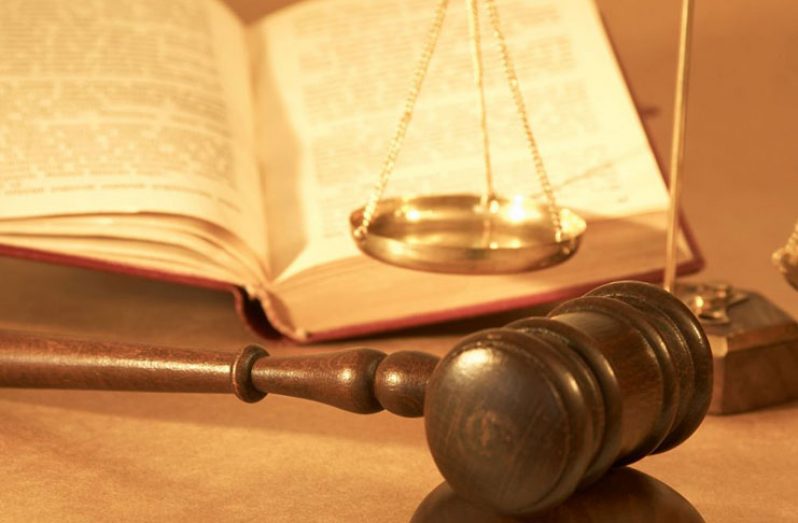AFTER a two-month murder trial before Justice James Bovell Drakes and a lengthy voir dire challenging the admissibility of a caution statement attributed to Satrohan Madray called “Bluee”, a mixed Berbice Assizes jury returned a verdict of not guilty in favour of the defence.
On August 8 last, Madray, at his arraignment, had pleaded not guilty to a charge of murder.
State Prosecutrix, Orintha Schimdt had led the evidence of several witnesses in an effort to establish that between February 16 and 17, 2014, Denish Harrylall, aged 20, of Woodley Park, West Coast Berbice, had gone to the home of Madray, his sleep over friend, where he requested a sum of $200,000 to go and ‘lime’.
But, Madray, a spiritualist of D’ Edward Village, also on the West Coast of Berbice, had believed that the money would have been spent on a female and denied his visitor the request.
Consequently, a heated argument ensued, resulting in Harrylall being inflicted with several wounds to his head and face.
A kitchen knife and a rolling pin were recovered.
Following the incident, the police were alerted and the unconscious Harrylall was taken to the Fort Wellington Cottage Hospital, West Coast Berbice where medical practitioners pronounced him dead.
Subsequently, the body was escorted to the Anthony Funeral Home and Dr Vivikanand Brijmohan, who performed a post-mortem, gave the cause of death as cerebral haemorrhage with lacerations of the brain and fractures to the skull.
In his address to the jury, Defence Counsel Mursalene Bacchus had stated that a motive was not a legal requirement as a person must be judged holistically.
According to him, the State’s case was based on a rolling pin and a knife, while noting that the State’s theory was that the rolling pin was used to inflict the injuries to the head of the deceased.
He supported his claim through the evidence of Government Pathologist, Dr Vivikanand Brijmohan, who stated that the injury was sustained by a heavy instrument.
However, the doctor was never shown the rolling pin, neither was he asked whether the kitchen utensil could have caused the injury, Bacchus argued.
Further, the police analysis Tamika Henry had revealed that there was no evidence of blood, neither was any fingerprint uplifted from the “belna” (rolling pin).
It was noted too that while there was evidence of human blood on the knife, there was no evidence of blood grouping nor whether the blood was indeed from the deceased body, or the accused clothing.
After the caution statement had been thrown out, Madray in an unsworn statement from the dock said Harrylall had visited his home on February 16, 2014, after 23:00hrs and after the front door was opened, three men pushed Harrylall on the floor.
The men were armed with a big wood, an iron and a knife, he said, and began to beat Harrylall while asking for their drugs money.
“I became afraid and ran into the nearby rice field and coconut estate,” Madray said.
In his summary of the evidence, Justice Bovel Drakes highlighted inconsistencies between the evidence of a taxi driver who is often hired by Madray and that of the father of the deceased.
The taxi driver had testified that the accused had told him that he [Madray] was engaged in a fight with the now deceased man. But under cross-examination, he denied saying so.
The judge had urged the jury to disregard the opinions of witnesses who were found to be inconsistent with the evidence in the matter.




.png)









